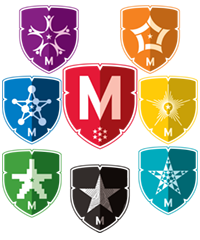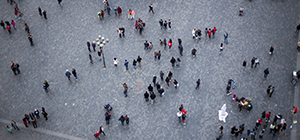Academics and Honors College

Honors Seminars
Rigorous, enriched, seminar-style courses, that rival offerings from private universities
Honors Seminars go beyond the classroom leveraging unique opportunities for research and study in Washington D.C., the U.S., and abroad. With classes of no more than 20 students, scholars experience learning in an intimate and academically distinguished environment. With professors who are leaders in their fields and the sprawling resources of a Big Ten university, the Honors College offers students an unmatched academic experience.
Highlights
National Security Dilemmas introduces students to the moral, legal, and policy dilemmas faced by national security professionals in defending the nation, including the use of enhanced interrogation techniques against suspected terrorists, the use of racial profiling as a technique in law enforcement, and whether we have a moral duty to intervene in foreign nations for humanitarian purposes, and whether we should accept a reduction in personal privacy for enhanced security.
The Problem of Prejudice: Overcoming Impediments to Global Peace and Justice
HONR 279L
Hoda Mahmoudi
Bahá’í Chair for World Peace
The Problem of Prejudice surveys interdisciplinary scholarly research and popular cultural conversations about the root causes of prejudice and discrimination. Students are expected to examine empirical evidence toward formulating their own views about the impact that all forms of prejudice impose on the human condition and the role it has played in their own life. Based on research evidence, the course encourages the search for solutions to the blight of prejudice.
Leonardo and the Science of Art
HONR 208R
Meredith Gill
Professor, Fifteenth- and Sixteenth-Century Italian Art, and Chair
Leonardo and the Science of Art explores the career and works of Leonardo da Vinci (1452-1519) with a view to examining how he pursued art and science as ways to understand the world and the human place in it. The course follows his life story and the chronology of his paintings, drawings, models and unrealized projects. It will examine the degree to which making art enabled Leonardo to understand natural phenomena such as the action of water and of birds in flight. As well as, his investigations of anatomy, his mechanical inventions and his theory of the arts.


